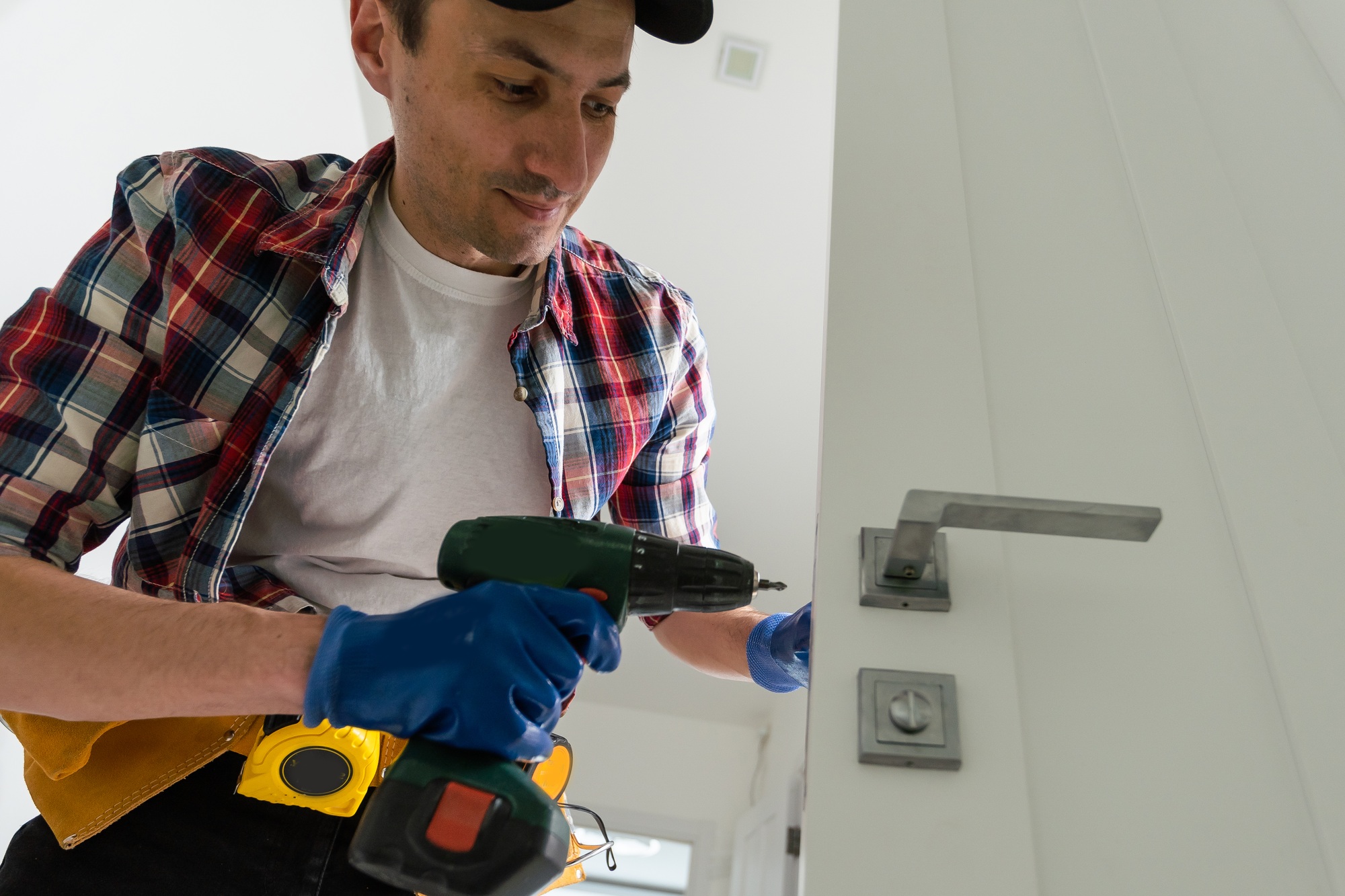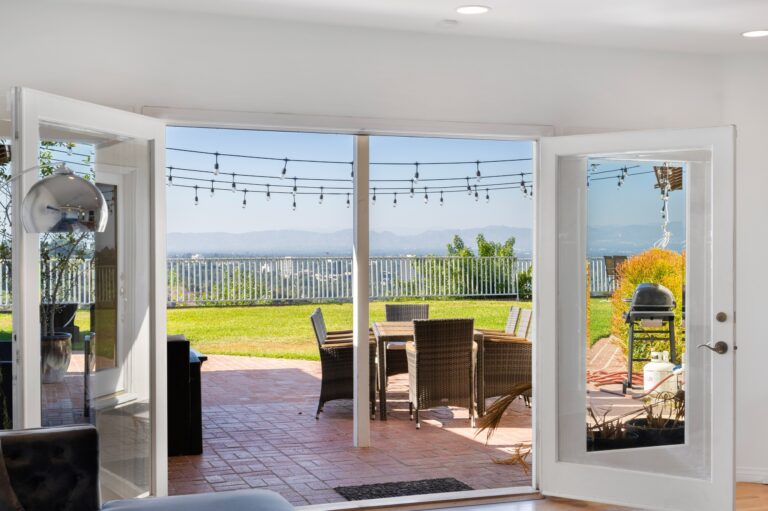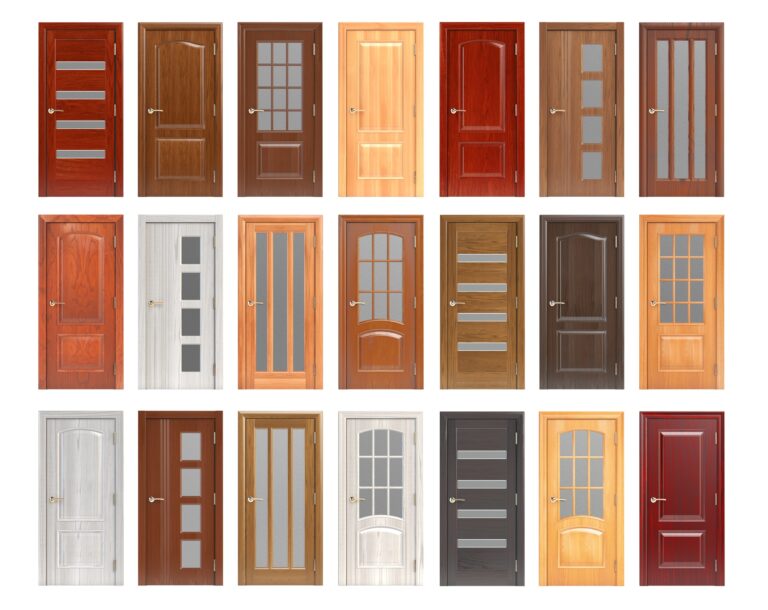Signs Your Door Needs Repair Vs Replacement
Not sure if your door needs fixing or replacing? Learn the key signs that tell you when a repair is enough and when a full replacement makes more sense.
Introduction
Every homeowner eventually faces the question: should I repair my door or just replace it? Sometimes the answer is obvious, like when a door is hanging off its hinges. Other times it’s not so clear, especially if the problems are more cosmetic or related to energy efficiency. Making the right call matters because repairing saves money in the short term, but replacing can add value and save on energy bills in the long run.
When A Repair Makes Sense
Not every issue requires a brand-new door. Small cracks, squeaky hinges, or weatherstripping that’s worn out are all things that can usually be fixed quickly and affordably. If your door is still solid at its core and functions well, a repair often buys you several more years of use.
Loose handles, sticky locks, and slight drafts are also repairable. In many cases, you can even replace the lockset or add insulation without needing to touch the main structure of the door. Just keep in mind that patching cosmetic issues repeatedly might not hold up forever — sometimes it’s only buying time.
When Replacement Is The Smarter Option
There are certain signs that point strongly toward replacement rather than repair. If the door itself is warped, cracked through, or rotting, repairs won’t truly solve the problem. You’ll still be left with gaps that let in air or security weaknesses that no lock can fix.
Another red flag is when energy bills are creeping up and you can feel cold or hot air leaking through no matter how often you replace the weatherstripping. A new, properly sealed door can drastically reduce drafts.
Finally, replacement makes sense if you’re looking for a style upgrade. If your current door looks dated, you may be surprised at how much impact a fresh design can have on curb appeal.
The Cost Factor
Repair is almost always cheaper in the short run, but replacement can be the better long-term investment. If you’ve spent money on multiple fixes in the last couple of years, it may be worth calculating whether that total could’ve been applied toward a new, efficient, and secure door.
Budget-conscious homeowners sometimes delay replacement far longer than they should, but the hidden costs in energy loss, security risks, and ongoing fixes can outweigh the initial savings.
Safety And Security Considerations
Security plays a huge role in whether you repair or replace. Even if you reinforce locks or hinges, a structurally weak or hollow-core door won’t provide the protection you need. Burglars tend to target weak entry points, and doors past their prime can be easy to force open.
By contrast, a modern replacement door with solid construction and upgraded locks acts as a serious deterrent. Think of it as peace of mind that also makes your house look better.
Door Repair
Door repair is ideal for minor issues that don’t compromise the integrity of the door. Things like re-aligning hinges, replacing worn-out seals, and touching up finish work can extend the life of your existing door without breaking the bank. Just remember repairs are best for surface-level issues — anything deeper than that probably means you’re putting a bandage on a larger problem.
Door Replacement
A full replacement is the better choice when the door no longer meets your needs for security, energy savings, or style. Upgrading doesn’t just solve the old problems — it can transform how your entryway looks and feels. In fact, a new front door is one of the most cost-effective improvements you can make to increase home value and give daily convenience.
Options and Upgrades
When thinking about replacement, it’s helpful to also consider how the door style options impact long-term satisfaction. Similarly, don’t forget that upgrading may open up opportunities for door security upgrades that simply aren’t possible with your older door.
For many families, the right choice comes down to balancing cost, appearance, and safety — and knowing when to move from quick fixes to a more permanent solution.
Conclusion
Every door eventually reaches the end of its life, but that doesn’t mean you need to replace it at the first sign of trouble. Small repairs can stretch your budget, while a well-timed replacement can improve your home’s comfort, safety, and resale value. If you’re weighing your options, get a personalized quote here.
FAQs
How Do I Know If My Door Is Warped?
Close the door and check if it sits flush in the frame. If you see gaps at the top or bottom, or it doesn’t latch smoothly, warping could be the issue.
Can I Replace Just The Door Slab And Keep The Frame?
Yes, if the frame is solid and not rotted or damaged, you can replace only the slab. But if the frame is compromised, a full unit swap is smarter.
How Long Does A Typical Repair Last?
Minor repairs can extend the life of a door for several years, though ongoing issues like rot or poor energy efficiency usually come back.
Will A Replacement Door Increase My Home Value?
Yes, front door replacements often bring a high return on investment compared to other projects. Buyers like secure, stylish entryways.
What’s The Average Cost Difference Between Repair And Replacement?
Repairs may run anywhere from $50 to $300, while full replacements often range from $500 to $2,000 depending on material and design.



